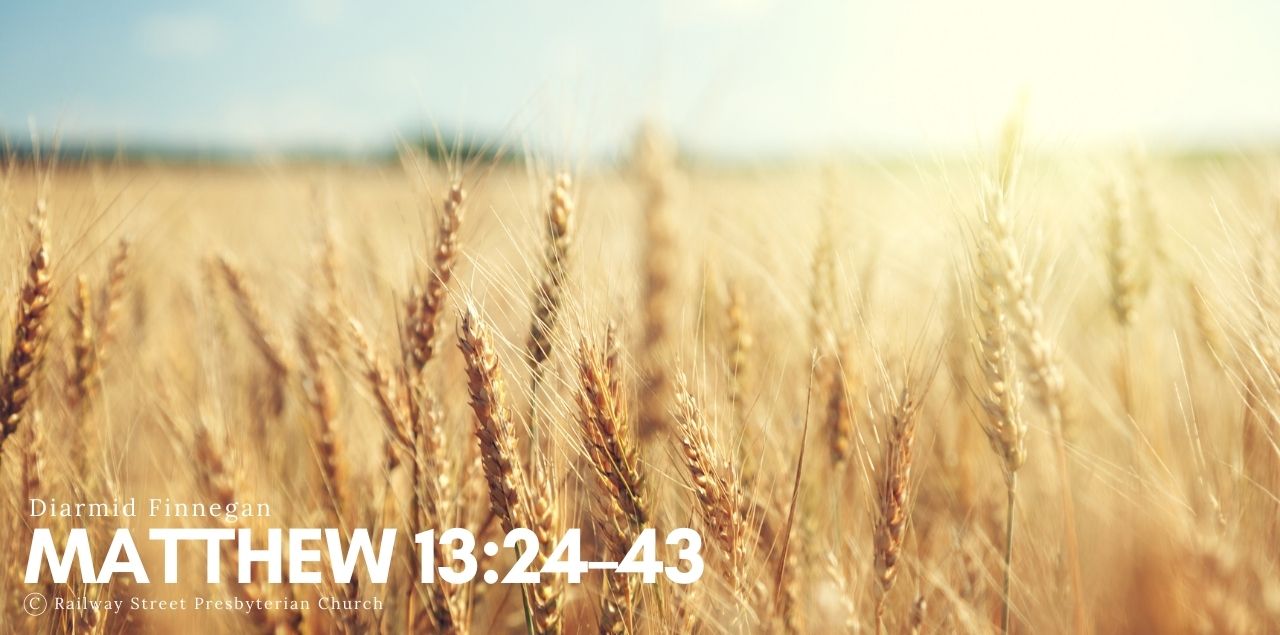
The story of the wheat and the weeds appears among a group of seven (some say eight) parables told by Jesus from a boat to a crowd gathered by the sea of Galilee. It was delivered shortly after heated exchanges between Jesus and a group of pharisees. The pharisees’ encounter with Jesus brought into sharp focus the wicked inclinations of the human heart and the promise of the final exclusion of evil from God’s eternal Kingdom.
The punchline of the parable is that Christ himself will act as the final judge of what is good and what is evil. This will be His job, not ours.
The parable encourages us to reflect on how that fundamental truth might inform the judgements we make about the wider world, our fellow believers, and the state of our own hearts.
Application Questions & Response:
- In what ways might we be tempted take it upon ourselves to cleanse the world of evil rather than waiting patiently on the mercy and final judgement of God?
How has the church’s impatience and premature judgement caused (sometimes devastating) harm in the past? - How should we hold each other to account in ways that deal decisively with actions that are clearly destructive and wicked?
How can we do so while aiming at restoration and reconciliation rather than permanent estrangement and total breakdown of relations (see, e.g., 1 Corinthians 5: 5 and Galatians 6:1)? - How does the parable of the wheat and the weeds give us hope in a world that continually displays an unsettling mixture of evident good and horrendous, unmitigated evil? How might we sustain and intensify that hope in the face of the persistence of sin in the world, the church, and within ourselves?